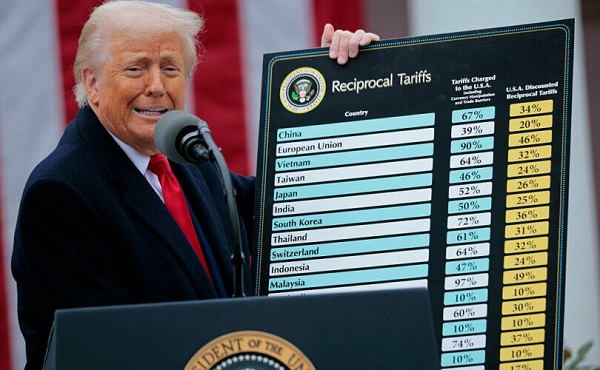Alberta
Alberta responses to federal energy stimulus package: A good start!

From the Province of Alberta
Federal energy stimulus package: Premier Kenney
Premier Jason Kenney issued the following statement on the federal government’s energy stimulus package:
“How we come through this economic crisis will depend in large part on the survival and the successful recovery of our country’s largest industry – the energy sector – on which some 800,000 Canadian jobs depend. We thank the federal government for taking this important first step to support the folks who work in our energy sector.
“The $1 billion partnership to address inactive wells aligns with Alberta’s commitment to ensuring our resources are developed in an environmentally sustainable fashion. This funding will immediately save or create thousands of jobs, keeping energy service companies going during these devastating times. It will also help us bring sites back to their original condition, leaving a cleaner environment for future generations. The $200 million loan to the Orphan Well Association will also help these efforts, demonstrating our commitment to producing Canadian energy under the world’s highest environmental standards.
“More support is needed to deal with the crisis in Canada’s energy sector, but this is a great first step. Our energy sector is facing its biggest challenge ever, and we need to be sure that industry can access the capital it needs to survive and thrive in future years. When the auto sector and the banks were threatened during the global financial crisis a decade ago, the economic strength of Alberta, powered by the energy industry, ensured that Canada was able to provide the urgent support they needed. We will continue to work with the federal government to ensure that the energy sector now gets the support it needs as it faces its own threats from both the COVID-19 pandemic and the Saudi-Russia price war.
“This unprecedented disruption in the world energy markets will eventually recede. Better times for the industry are a matter of when – not if – but only if the industry survives the next couple of years. We need to make sure Alberta is prepared and ready for the global recovery when the time comes. Alberta’s energy industry is the lifeblood of our provincial economy – and the largest subsector of Canada’s economy, as well as one of its biggest employers. The energy sector helps some of our country’s most important industries thrive, including health care, manufacturing and transportation.
“We are grateful for this job-creating initiative, and we will continue to work with the federal government until the energy sector has what it needs to survive and thrive for the benefit of all Canadians.”
From the Alberta NDP Caucus
SCHMIDT STATEMENT ON FEDERAL SUPPORT FOR ENERGY INDUSTRY
Marlin Schmidt, NDP Environment Critic, issued the following statement regarding the federal government’s aid package for Alberta’s energy industry:
“Cleaning up oil and gas sites is good news for our energy sector workers, landowners, and our environment. From day one, we have been advocating for support to cleanup orphan wells. It will put thousands of Albertans back to work while supporting responsible resource development.
“The UCP government must use this money in a way that ensures polluters still pay for the cleanup of their sites. They must also set clear targets and timelines for well cleanup now and into the future. I also hope the UCP will ensure landowners and municipalities are compensated for wells on their land.
“While this is good news for our energy sector and landowners, there are still a lot of Albertans and businesses struggling to make ends meet. I wish Premier Kenney and the UCP would step up and provide real leadership to support all Albertans and all sectors of our province instead of constantly relying on the federal government to act first.”
From the Alberta Federation of Labour
Alberta unions applaud federal support for oil and gas workers
“The money for orphan wells and methane reduction, announced by the federal government today, will help the environment and create jobs at a time when they’re desperately needed,” says the president of Alberta’s largest worker advocacy organization.
“This is a classic win-win scenario,” says Gil McGowan, president of the Alberta Federation of Labour. “The $1.7 billion being dedicated to orphan and abandoned wells can be put to use almost immediately. It will help address a problem that has been simmering in Alberta for years and, in the process, it will put literally thousands of people in the oil field service industry back to work. There is no doubt in my mind that this is one of the most constructive things that the federal government can do to help oil and gas workers at this time. It’s greatly appreciated.”
McGowan says he’s also very happy with the work the federal government did to get input from a wide variety of stakeholders.
“Here in Alberta, we’re used to our provincial governments consulting only with industry and then making a policy based on that narrow range of perspectives. But the federal government took a very different approach, consulting with workers, environmental groups, landowners and others, in addition to industry. It’s very refreshing. And, I think it shows that you get better policy outcomes when you take the time to hear from a wider cross-section of people.”
Of the $1.7 billion ear-marked for well remediation, $200 million will go directly to Alberta’s Orphan Well Association and $1 billion will go directly to the Alberta government. Alberta will be required to address concerns about how the whole issue of orphan wells is managed going forward.
“That last point is really important to us,” concluded McGowan. “This money won’t just create jobs; it will also require the Alberta government to clean up its act when it comes to implementing and overseeing rules requiring oil and gas companies to clean up their acts. That’s very good news for our province.”
From the Progressive Contractors Association of Canada
PCA: Federal Aid Package for Oil and Gas Sector a Beginning
The $1.7 billion aid package announced today for the oil and gas sector is a welcome start, according to the Progressive Contractors Association of Canada (PCA) which has seen many of its member company operations in the oil sands sector scaled back, shut down or delayed, resulting in thousands of layoffs.
“It’s a good day when thousands of jobs in Western Canada can be saved,” said Paul de Jong, President of the Progressive Contractors Association of Canada (PCA). “However, with a record number of energy companies folding, it will take far more to stave off a full-scale collapse.”
Prime Minister Trudeau announced $1.7 billion in funding to clean up orphaned oil wells in Alberta, Saskatchewan and British Columbia. The aid is expected to maintain as many as 5,200 jobs in Alberta alone.
“We’re still waiting for a federal aid package that fairly reflects the value and importance of the oil and gas industry,” added de Jong. “Given that this sector accounts for more than a tenth of GDP and employs tens of thousands of workers, the government still has a long way to go in demonstrating a real commitment to its survival.”
Last week, PCA sent Trudeau a letter, urging his government to provide support to the oil and gas sector without further delay.
About the Progressive Contractors Association of Canada (PCA) With offices in BC, Alberta and Ontario, PCA is the voice of progressive unionized employers in Canada’s construction industry. Our member companies are responsible for 40 percent of energy and natural resource construction projects in British Columbia and Alberta and are leaders in infrastructure construction across Canada. PCA member companies employ more than 25,000 skilled construction workers in Canada, represented primarily by CLAC.
From the Canadian Association of Petroleum Producers
CAPP issues statement recognizing the Government of Canada’s support for the oil and natural gas industry
“The Canadian Association of Petroleum Producers (CAPP) recognizes the Government of Canada’s support for the oil and natural gas industry, and appreciates the initiatives announced today which will protect about 10,000 jobs across the country.
The $1.7 billion announced today, for the closure and reclamation of orphan and inactive wells in Saskatchewan, Alberta, and British Columbia, is welcome news. Reducing environmental liabilities is a priority for the oil and natural gas industry and this initiative will allow important work to accelerate, while supporting thousands of jobs.
The government also announced a $750 million emissions reduction fund which will help companies continue their progress to reduce methane emissions. Canada’s oil and natural gas industry has committed to a 45 percent reduction of methane emissions by 2025, and the government is helping ensure that innovation and progress in this key area can continue during the economic crisis.
We are also encouraged by news that the government is working with the Business Development Bank of Canada and Export Development Canada to strengthen support for corporations who are most at risk. Liquidity is a real and immediate challenge for oil and natural gas producers and CAPP has been working with the federal government to identify urgent action needed to address the dire situation. We are awaiting additional details on the expansion of support — a critically important matter as companies try to weather the current crisis.
CAPP will continue to talk with all levels of government to ensure adequate support is in place to help businesses and jobs survive this unprecedented economic crisis. Survival of the energy sector will be crucial to Canada’s economic recovery.”
-Tim McMillan, President and CEO – Canadian Association of Petroleum Producers
From Cenovus, Brett Harris, Manager of Communications
We are appreciative that the federal government recognizes the dire situation the energy industry is in with the decrease in oil demand due to COVID-19 resulting in unprecedented low oil prices. The industry is in survival mode and needs the government to provide support to help companies preserve cash and access additional liquidity so they can still be here to help rebuild the economy once the immediate crisis passes.
We need more details about the federal aid for inactive and abandoned wells and methane emissions reduction. Cenovus has a strong history of addressing these areas of environmental responsibility and we will continue to take proactive actions so the government funding may help us progress these activities. Again, we still need to see the details.
The most important action the federal government can take to ensure the industry remains strong is by providing a temporary safety net in the form of increased access to liquidity. There are many options for this support to be delivered and we are urging the government to take swift action to pursue that.
Alberta
Alberta takes big step towards shorter wait times and higher quality health care

From the Fraser Institute
On Monday, the Smith government announced that beginning next year it will change the way it funds surgeries in Alberta. This is a big step towards unlocking the ability of Alberta’s health-care system to provide more, better and faster services for the same or possibly fewer dollars.
To understand the significance of this change, you must understand the consequences of the current (and outdated) approach.
Currently, the Alberta government pays a lump sum of money to hospitals each year. Consequently, hospitals perceive patients as a drain on their budgets. From the hospital’s perspective, there’s little financial incentive to serve more patients, operate more efficiently and provide superior quality services.
Consider what would happen if your local grocery store received a giant bag of money each year to feed people. The number of items would quickly decline to whatever was most convenient for the store to provide. (Have a favourite cereal? Too bad.) Store hours would become less convenient for customers, alongside a general decline in overall service. This type of grocery store, like an Alberta hospital, is actually financially better off (that is, it saves money) if you go elsewhere.
The Smith government plans to flip this entire system on its head, to the benefit of patients and taxpayers. Instead of handing out bags of money each year to providers, the new system—known as “activity-based funding”—will pay health-care providers for each patient they treat, based on the patient’s particular condition and important factors that may add complexity or cost to their care.
This turns patients from a drain on budgets into a source of additional revenue. The result, as has been demonstrated in other universal health-care systems worldwide, is more services delivered using existing health-care infrastructure, lower wait times, improved quality of care, improved access to medical technologies, and less waste.
In other words, Albertans will receive far better value from their health-care system, which is currently among the most expensive in the world. And relief can’t come soon enough—for example, last year in Alberta the median wait time for orthopedic surgeries including hip and knee replacements was 66.8 weeks.
The naysayers argue this approach will undermine the province’s universal system and hurt patients. But by allowing a spectrum of providers to compete for the delivery of quality care, Alberta will follow the lead of other more successful universal health-care systems in countries such as Australia, Germany, the Netherlands and Switzerland and create greater accountability for hospitals and other health-care providers. Taxpayers will get a much better picture of what they’re paying for and how much they pay.
Again, Alberta is not exploring an untested policy. Almost every other developed country with universal health care uses some form of “activity-based funding” for hospital and surgical care. And remember, we already spend more on health care than our counterparts in nearly all of these countries yet endure longer wait times and poorer access to services generally, in part because of how we pay for surgical care.
While the devil is always in the details, and while it’s still possible for the Alberta government to get this wrong, Monday’s announcement is a big step in the right direction. A funding model that puts patients first will get Albertans more of the high-quality health care they already pay for in a timelier fashion. And provide to other provinces an example of bold health-care reform.
Alberta
Alberta’s embrace of activity-based funding is great news for patients

 From the Montreal Economic Institute
From the Montreal Economic Institute
Alberta’s move to fund acute care services through activity-based funding follows best practices internationally, points out an MEI researcher following an announcement made by Premier Danielle Smith earlier today.
“For too long, the way hospitals were funded in Alberta incentivized treating fewer patients, contributing to our long wait times,” explains Krystle Wittevrongel, director of research at the MEI. “International experience has shown that, with the proper funding models in place, health systems become more efficient to the benefit of patients.”
Currently, Alberta’s hospitals are financed under a system called “global budgeting.” This involves allocating a pre-set amount of funding to pay for a specific number of services based on previous years’ budgets.
Under the government’s newly proposed funding system, hospitals receive a fixed payment for each treatment delivered.
An Economic Note published by the MEI last year showed that Quebec’s gradual adoption of activity-based funding led to higher productivity and lower costs in the province’s health system.
Notably, the province observed that the per-procedure cost of MRIs fell by four per cent as the number of procedures performed increased by 22 per cent.
In the radiology and oncology sector, it observed productivity increases of 26 per cent while procedure costs decreased by seven per cent.
“Being able to perform more surgeries, at lower costs, and within shorter timelines is exactly what Alberta’s patients need, and Premier Smith understands that,” continued Mrs. Wittevrongel. “Today’s announcement is a good first step, and we look forward to seeing a successful roll-out once appropriate funding levels per procedure are set.”
The governments expects to roll-out this new funding model for select procedures starting in 2026.
* * *
The MEI is an independent public policy think tank with offices in Montreal, Ottawa, and Calgary. Through its publications, media appearances, and advisory services to policymakers, the MEI stimulates public policy debate and reforms based on sound economics and entrepreneurship.
-

 2025 Federal Election2 days ago
2025 Federal Election2 days agoHarper Endorses Poilievre at Historic Edmonton Rally: “This Crisis Was Made in Canada”
-

 conflict2 days ago
conflict2 days agoZelensky Alleges Chinese Nationals Fighting for Russia, Calls for Global Response
-

 2025 Federal Election2 days ago
2025 Federal Election2 days agoAn In-Depth Campaign Trail “Interview” With Pierre Poilievre
-

 2025 Federal Election1 day ago
2025 Federal Election1 day agoMark Carney’s radical left-wing, globalist record proves he is Justin Trudeau 2.0
-

 Business2 days ago
Business2 days agoTrump’s tariff plan replaces free trade with balanced trade. Globalists hate that.
-

 2025 Federal Election2 days ago
2025 Federal Election2 days agoElection Security Briefing Confirms CCP-Linked Operation Boosted Carney
-

 2025 Federal Election15 hours ago
2025 Federal Election15 hours agoConservative Party urges investigation into Carney plan to spend $1 billion on heat pumps
-

 2025 Federal Election1 day ago
2025 Federal Election1 day agoDon’t double-down on net zero again





